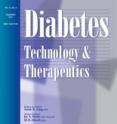More questions than answers remain concerning effects of airplane travel on insulin pump delivery
Despite recent concerns that changes in atmospheric pressure during airplane travel may affect the amount of insulin delivered via pump devices, the current evidence is limited and it would be unwise to overreact until more data are available, according to an insightful editorial in Diabetes Technology & Therapeutics, a peer-reviewed journal published by Mary Ann Liebert, Inc. Irl B. Hirsch, MD, Professor of Medicine, University of Washington School of Medicine (Seattle), and Senior Editor of Diabetes Technology & Therapeutics penned a thoughtful editorial commenting on a recent article by King et al., in which the authors simulated the effects of changes in atmospheric pressure in a hypobaric chamber and reported the delivery of improper amounts of insulin to a small number of patients with type 1 diabetes who used insulin pumps.
"This study was implemented in such a small number of people that large conclusions may not be justified," writes Dr. Hirsch. "It is possible the authors overreacted in their recommendations," he adds, suggesting that their recommendations be viewed with skepticism as they are not supported by data or practical advice.
While the paper by King et al. provides one possible explanation for why blood glucose levels may fluctuate in patients using insulin pumps, it has several limitations, including the very small changes in insulin delivery that occurred during the simulations.


